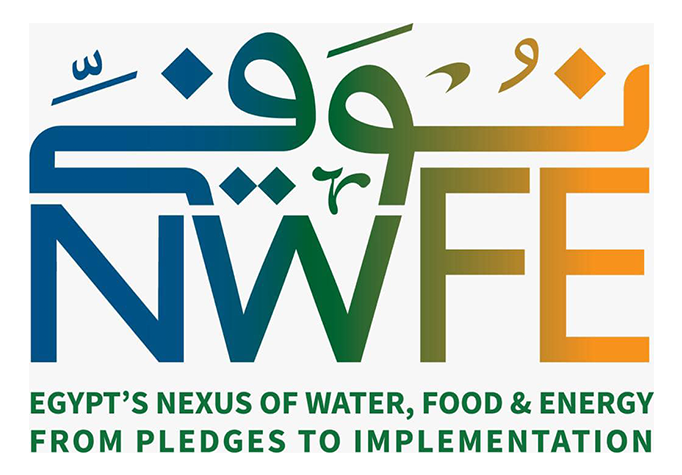
Water Conservation: 7 Simple Ways to Save Water at Home and in Your Business
Water is one of our most precious resources, yet it is often wasted without thought. ...

Stephane Guimbert, World Bank Country Director for Egypt, Yemen, and Djibouti, has commended Egypt’s Nexus of Water, Food & Energy (NWFE) to confront the fallout of climate change and become more competitive globally.
“Focusing on efficient and inclusive ways of managing the water, food and energy sectors boosts the economy and creates jobs, while also helping to protect Egypt from the adverse effects of climate change and making it more competitive globally,” said Guimbert. “NWFE is a trailblazing country platform that brings partners together, under the leadership of the government, to ensure our programs are more than the sum of the parts. The World Bank is committed to supporting Egypt’s ambitious and innovative climate endeavors, helping Egyptians to live healthier and more productive lives.”
The World Bank has supported NWFE from the outset through its research and projects. For example, the the World Bank’s Egypt Country Climate and Development Report (CCDR) helped to guide the design of NWFE, laying out the kind of investments and policy actions needed to decrease the negative impacts of climate change and at the same time creating economic and developmental wins for Egyptians.
The CCDR identifies opportunities to reduce climate action inefficiencies, manage risk, and strengthen the foundation for increased private-sector participation. In addition, it offers a set of policy options and investment opportunities that, if implemented within five years, can deliver short-term benefits in selected sectors and create momentum for important long-term benefits.
In the agri-food sector, the Bank’s Emergency Food Security and Resilience Support Project supported the emergency purchase of 1.15 million tons of wheat in the past December –January period. This wheat was intended for the national Bread Subsidy Program to ensure that poor and vulnerable households have uninterrupted access to bread, a key ingredient for Egyptians’ diets. In the medium- to long-term the project supports Egypt’s resilience to future food shocks. In this context, the project is financing construction of additional 750,000 metric tons capacity of wheat storage, supporting the National Program of Silos in nine locations – predominantly in Upper Egypt.
These new and expanded silos are connected to rail, river and road transportation routes and will receive and store wheat produced domestically, including and predominantly from small and medium farmers. In addition to increasing the domestic supply of wheat, the project also supports farmers’ access to markets and value chains.
Climate considerations are also woven into the Bank’s Inclusive Housing Finance program by using energy-efficient and environmentally friendly building practices. This program aims to support ongoing efforts to make housing more affordable for low-income households in Egypt.
The program has adopted the national Green Pyramid Rating System, for a pilot of 25,000 units, which ensures that all planning and construction processes are done in a way that causes minimal pollution and emissions, making the buildings “Green”. An additional 25,000 units will be built according to national and international green standards (including IFC’s EDGE). According to research conducted by the National Building and Housing Research Center in Egypt, green buildings can reduce energy consumption by 24 to 50 percent.
The Railway Improvement and Safety for Egypt (RISE) project supports Egypt’s efforts to decarbonize the transport sector and increase safety and resilience. This project is aligned with an additional sustainable transport pillar to NWFE called NWFE +, which expands the original nexus program to focus on sustainable transportation. The RISE project will help to modernize the signaling system for the Cairo – Giza – Beni Suef segment of the Egyptian National Railway (ENR) network and support reforms needed to enhance ENR’s performance and competitiveness. Enhancing ENR’s performance and services will encourage more people to take the train and benefit over 1.4 million passengers daily. Boosting ridership will in turn decrease the transportation sector’s emissions, which currently stand at 24% of the country’s total emissions. Lower emissions will translate into cleaner air for Egyptians, which will in turn have a positive effect on their health and productivity.
The Sustainable Rural Sanitation Services Program for Results supports Egypt’s climate efforts in the water sector. The project aims to provide high quality sanitation services for the rural governorates of Beheira, Dakahliya, Sharkiya, Gharbiya, Minoufiya & Damietta, including through establishing over 375,000 household wastewater connections that are connected to wastewater treatment plants which meet local environmental laws. The program incentivizes local water and sanitation companies to improve their efficiency by disbursing against the achievement of key performance indicators and supports sector reforms through a revision of tariffs, development of a sector strategy and by strengthening the regulator. It also helps to reduce the vulnerability of households from the harmful impacts from the overflow of untreated sewage into the environment. Additionally, the project supports Egypt’s agricultural sector – a major contributor to the country’s economic growth– by preventing untreated sewage from contaminating the soil.
These examples of support to NWFE are also fully aligned with the new World Bank Egypt Partnership framework, which was designed to address the country’s emerging development needs, including climate action. The framework focuses on integrating climate action aspects into all relevant projects.
The first phase of this program bundles nine priority projects, extracted from the National Climate Change Strategy 2050, that focus on water, food, and energy. These projects support Egypt’s green transition by leveraging partnerships and mobilizing climate finance and private investments.
One year into its implementation the NWFE program has attracted a significant amount of support for a variety of projects, while engaging donors, multilateral development banks and the private sector.
اترك تعليقا